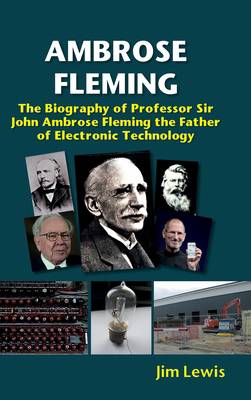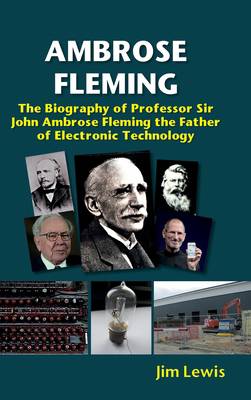
Bedankt voor het vertrouwen het afgelopen jaar! Om jou te bedanken bieden we GRATIS verzending (in België) aan op alles gedurende de hele maand januari.
- Afhalen na 1 uur in een winkel met voorraad
- In januari gratis thuislevering in België
- Ruim aanbod met 7 miljoen producten
Bedankt voor het vertrouwen het afgelopen jaar! Om jou te bedanken bieden we GRATIS verzending (in België) aan op alles gedurende de hele maand januari.
- Afhalen na 1 uur in een winkel met voorraad
- In januari gratis thuislevering in België
- Ruim aanbod met 7 miljoen producten
Zoeken
Ambrose Fleming
The Biography of Professor Sir John Ambrose Fleming, the Father of Electronic Technology
Jim Lewis
Hardcover | Engels
€ 37,45
+ 74 punten
Uitvoering
Omschrijving
It is probable that most people and businesses who currently enjoy the ability to communicate with friends, family, and colleagues around the world, give little thought to the man who gave them the technology to be able achieve this modern miracle. That man, Professor John Ambrose Fleming, born during the reign of Queen Victoria, had the vision to develop an electronic device that has allowed us to communicate and receive limitless information from the comfort of our armchairs. This biography tracks Fleming's early life with a view to getting inside the mind of the man to discover his initial interests and various thought processes. It also brings to light how Fleming's thermionic valve changed the strategy of warfare for ever, introduced the technology to track aircraft and shipping and provided new ways for the intelligence services to eavesdrop on our enemies. It is highly doubtful that Fleming would have had the slightest idea that his technology would have had such a profound effect on so many of these various areas when he first made his amazing discovery. In exploring the great man's life, Jim Lewis translates some of Fleming's experiments and discoveries into a form of non-Victorian language which will (hopefully) make sense to the lay person.
Specificaties
Betrokkenen
- Auteur(s):
- Uitgeverij:
Inhoud
- Aantal bladzijden:
- 138
- Taal:
- Engels
Eigenschappen
- Productcode (EAN):
- 9781912969791
- Verschijningsdatum:
- 20/07/2025
- Uitvoering:
- Hardcover
- Formaat:
- Genaaid
- Afmetingen:
- 152 mm x 229 mm
- Gewicht:
- 421 g

Alleen bij Standaard Boekhandel
+ 74 punten op je klantenkaart van Standaard Boekhandel
Beoordelingen
We publiceren alleen reviews die voldoen aan de voorwaarden voor reviews. Bekijk onze voorwaarden voor reviews.









